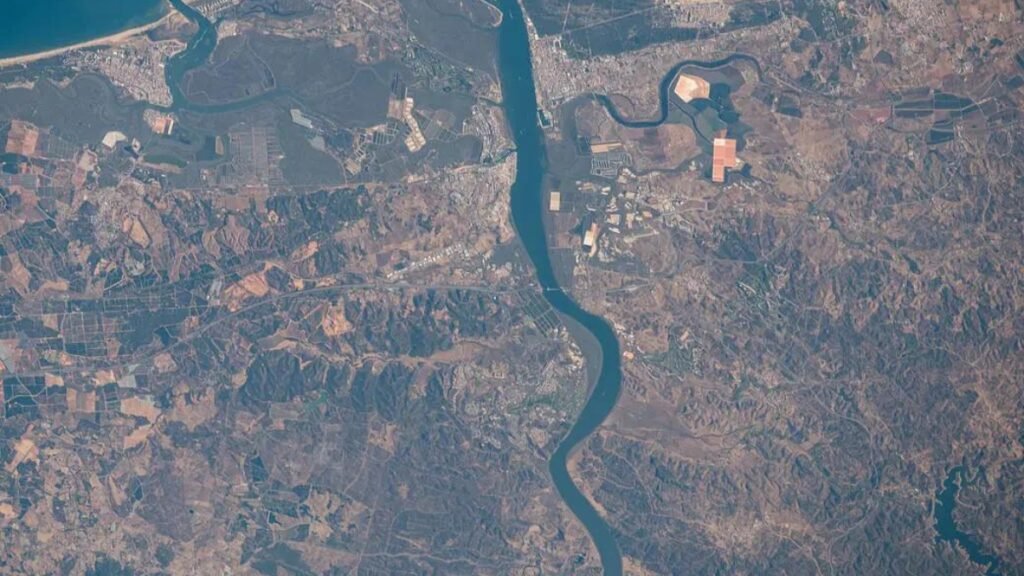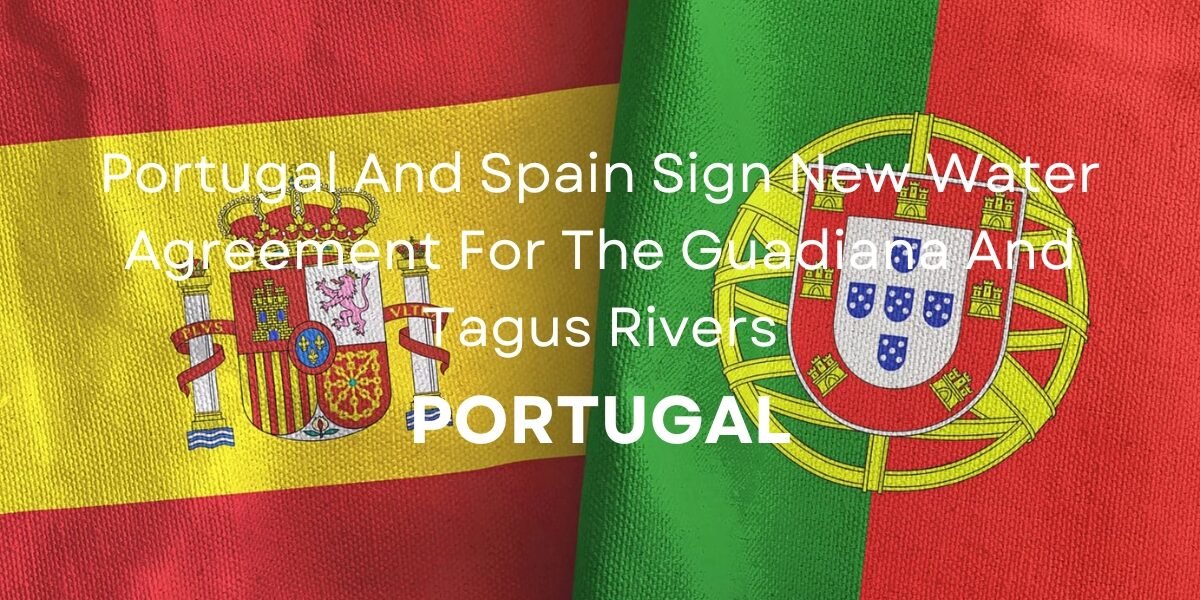Portugal and Spain share several important rivers. Cooperation between the two countries is essential for managing these water resources. This year, they celebrated 25 years of the Albufeira Convention. This treaty has helped both countries manage shared rivers, such as the Tagus and Guadiana.
A new set of deals were discussed during a meeting in Aranjuez, Spain, to handle current and potential problems connected to water management.
Read More About: Real Estate Investment Highgate Announces Rebranding Of 4 Properties In Algarve
The Albufeira Convention

Portugal’s Environment Minister Maria da Graça Carvalho, and Minister of Spain Teresa Ribera attended the event. There were also officials from both countries present during the ceremony. The event served as a venue for discussions regarding the future of shared rivers, their surroundings, and how water is used.
The Albufeira Convention was established in 1998 to control the shared rivers of Portugal and Spain. The agreement set rules for how these rivers are divided between the two countries. These rivers include Tagus, Guadiana, Douro, Lima, and Minho.
It supports sustainable consumption and helps them avoid conflicts over water. This treaty has become crucial for agriculture, industry, and households with increasing water demands.
Now, both countries are facing new challenges 25 years later. Floods and climate change are changing the water supply. This event was also a chance to review the agreement and make changes where necessary.
New Agreements On Guadiana River Water Usage

The Guadiana River is a major focus of the new agreement. This river flows through both Portugal and Spain. Water from Guadiana is important for agriculture in both countries.
The new deal includes Spain paying Portugal two million euros per year for water it uses from the Alqueva reservoir that is located in Alentejo region of Portugal.
Spanish farmers had free access to this reservoir’s supply of water. But Portuguese farmers always had to pay. This caused an imbalance.
Now, both sides will pay the same rate for water with the new agreement. Maria da Graça Carvalho explained that this payment is necessary to ensure fairness.
José Pedro Salema, head of the Alqueva Development and Infrastructure Company (EDIA), supported the agreement. He pointed out that some farms on the Spanish side of the river were very close to farms in Portugal.
Yet, only Portuguese farmers had to pay for water. This new payment system brings equality to the arrangement that will benefit both sides.
Dolores Pascual, Spain’s Water Director expressed:
The new agreement between the two countries should regulate both the volumes [of water] withdrawn and possible payments (…) that Spanish farmers must make to the Portuguese authorities
This agreement also includes the flow of Guadiana River close to its outlet in the Huelva region of Spain. Dolores Pascual said that this flow is important for maintaining water quality. It is also needed to support Spanish farmers during droughts.
She said:
Once the necessary flows for the river are guaranteed, we can talk about other possible uses on both sides of the border. The [Spanish] ministry’s priority is fundamentally to provide greater guarantees for the uses that currently exist in the province of Huelva. In a drought situation, such as the one we are experiencing, they should have greater guarantees
Tagus River Agreement

The Tagus River is another key focus of the new agreements. The Tagus is the largest rivers on the Iberian Peninsula. It flows from Spain into Portugal before reaching the Atlantic Ocean. It is important for farming, hydroelectric power, and drinking water. Many people and industries rely on the river.
The condition of the Tagus has been something of concern in recent years. Water levels have been inconsistent, harming ecosystems and communities along the riverbanks. Several organizations have called for increased river flow protection measures.
Portugal has advised for new rules that will require a constant supply of water in the Tagus. Maria da Graça Carvalho suggested these flows should be guaranteed daily rather than only weekly or monthly. This will create greater equilibrium and protect the river’s ecosystems.
This idea is supported by over thirty civic organizations. They have demanded that the agreement include a statistically valid plan to preserve the river’s ecological health.
They are concerned that if such a plan is not implemented, the Tagus will suffer significant environmental damage. During these discussions, Spain was transparent and acknowledged the demand for stronger protections.
Portugal’s Environment Minister said that the discussions with Spain went well. Spain is also determined to resolve these issues which demonstrates that both countries are committed to protecting the Tagus.
The Albufeira Convention was a good start but both countries agree that more needs to be done. The new agreements on the Guadiana and Tagus rivers demonstrate their commitment to working together for a sustainable future. Both countries will now pay the same amount for the same resource from the Alqueva reservoir
